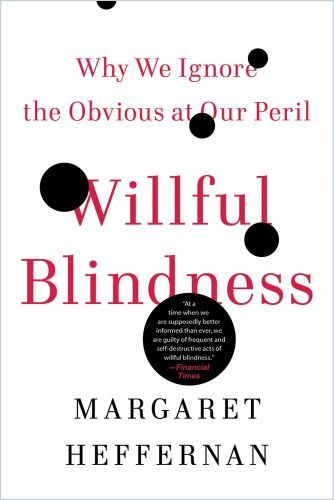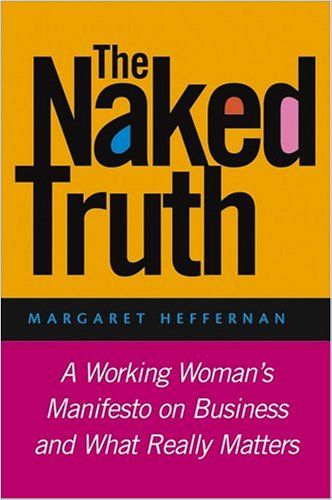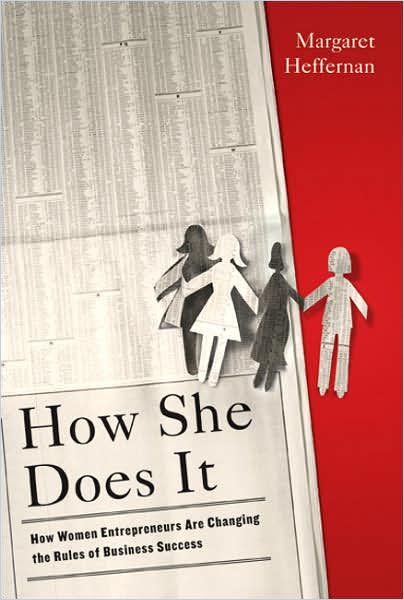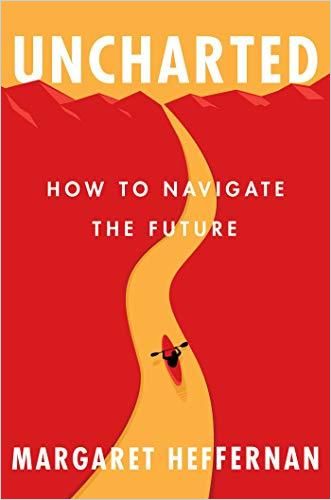Margaret Heffernan

Margaret Heffernan, a former BBC producer, is a serial entrepreneur who served as CEO of several companies. She’s authored six business books, including Willful Blindness: Why We Ignore the Obvious at Our Peril, which the Financial Times calls one of the most important business books of the decade.
She’s given several popular TED Talks, seen by more than 12 million viewers. Heffernan teaches at the University of Bath and the Forward Institute’s Responsible Leadership Programme. She is a sought-after speaker and executive coach. Find out more at MHeffernan.com.
1. Margaret Heffernan’s Key Findings and Messages
- Sexism is a persistent obstacle for women in business.
- People must “dare to disagree” to foster innovation and avoid potential disasters.
- “Willful blindness” is a human vulnerability especially dangerous in organizations.
- Efficiency is not always the best choice.
- Human adaptability is a valuable talent in an unpredictable world.
2. Why Do They Matter?
Heffernan’s first books focused on women in the workplace and entrepreneurship but later books and her TED Talks stress the negative effects of “willful blindness” in individuals, organizations and communities as well as the dehumanizing effects of technology. It’s human nature to seek out confirmation bias in information and to feel more comfortable around people who share your views, however, diversity leads to more robust discussions, innovation and problem-solving. Even when people have the freedom to speak openly, they often don’t use it. Resilient organizations should encourage employees to “dare to disagree.” In a world where more decisions are being left to algorithms, it’s important to nurture the uniquely human skills that bolster creativity. More diverse organizations are better able to meet the challenges of an unpredictable future.
3. To Understand Heffernan’s Work, Start Here
Heffernan published Willful Blindness: Why We Ignore the Obvious At Our Peril in 2012:

In her 2013 TED Talk, Heffernan put the dangers of “willful blindness” in sharp relief with the story of a community that did not want to acknowledge they had a deadly problem:
Highlights:
- “Willful blindness” leaves you vulnerable, disadvantaged and, at worst, complicit in evil.
- People instinctively want to love, live and work with others most like themselves.
- People accept the comfort of the status quo rather than face conflict and harsh realities.
- Institutional hierarchies and corporate cultures pressure people to conform fully or obey blindly.
- Learn more.
You cannot fix a problem you refuse to acknowledge.
Margaret Heffernan
4. Advice for Working Women
In The Naked Truth, Heffernan lays out the reality for women in the workforce and their dismal prospects for leadership positions in many organizations. In How She Does It, Heffernan focuses on an increasingly appealing alternative to dead-end workplaces for women: entrepreneurship.

- The traditional, male model of cutthroat attitudes and power-based techniques clashes with the values of women – and of many men.
- “Acting like a man” will not help a woman succeed in such a place.
- Be prepared to walk away from a job where you are not valued or are abused.
- Women and increasing numbers of men want a better work-life balance.

- Women own 40% of all privately held businesses.
- Women start their own businesses to gain freedom and control.
- Values play a central role in how women make decisions and run their businesses.
- Successful companies put people first, including their employees and customers.
- Entrepreneurs don’t like to ask for help and give away proprietary information, but for the company’s sake, women entrepreneurs seek advice more often than men do.
I see women creating a new business order that places values at the heart of business, takes sustainability seriously, and recognizes that business is and always will be emotional.
Margaret Heffernan
5. Building Resilient Organizations
In Heffernan’s first TED Talk “Dare to Disagree,” she urges leaders to regard conflict as a kind of thinking that challenges people to defend their assertions and reach for better solutions.
- 85% of executives surveyed in both the US and Europe have concerns they’re afraid to bring up at work.
- Most catastrophes happen not because information wasn’t available, but because warnings were ignored for fear of provoking conflict.
- Constructive conflict requires a diversity of viewpoints.
- It’s not enough to encourage open exchange. You also need to nurture the habits, skills “and the moral courage to use it.”
In her latest book, Uncharted, and in “Human Skills in an Unpredictable World,” her 2019 TED Talk, Heffernan addresses the potential downsides of efficiency. Organizations should value and support the human ability to deal with the unpredictable.

- The world is complex and the future impossible to predict.
- Technological efficiencies break down in the face of unexpected change.
- Efficiencies can harm natural human resiliencies.
- Small changes can lead to big impacts.
- Imagining future scenarios can help people be ready for unpredictable contingencies.
- “Cathedral projects, ” long-term, open-ended collaborative undertakings motivate people because their scale is both exciting and humbling.
In an environment that defies so much forecasting, efficiency won’t just not help us, it specifically undermines and erodes our capacity to adapt and respond.
Margaret Heffernan
Highlights:
- The unexpected is the new normal.
- You can predict disaster will happen, but not when or where; however, you can prepare for it.
- It may be inefficient to plan for all scenarios, but it is the most robust way to meet the future.
- Overdependence on technologies weakens precisely the skills humans need to navigate tricky, constantly changing situations.
Preparedness, coalition-building, imagination, experiments, bravery – in an unpredictable age, these are tremendous sources of resilience and strength…they give us limitless capacity for adaptation, variation and invention.
Margaret Heffernan
6. Additional Resources by Topic
- Guard against blind spots – Become more aware of your biases. Seek out third party opinions and people with divergent views and backgrounds. Question “big ideas,” the ones people tend to take for granted. Listen to that voice inside when you feel something isn’t right.
- Whistleblowers refuse willful blindness – They use the freedom they have to speak out because they care about the organizations they serve. Listen to Heffernan’s thoughts on whistleblowers via BBC Radio.
- Ditch the “superchicken model” – In “Forget the Pecking Order at Work,” Heffernan details an experiment by William Muir where he tried to engineer a superior flock by picking the most productive chickens in each generation and focusing resources on them. These “superchickens” ended up killing off less strong chickens, resulting in very small flocks. Over the past half century, Heffernan notes, organizations followed this “superchicken model,” giving all the power and resources to a few superstars and suppressing everybody else’s productivity. This predictably leads to “aggression, dysfunction and waste.”
- Collaboration offers more benefits than competition – Building “spare capacity” is superior to “just-in-time” production. Heffernan speaks to the “uncharted” future.
- Change management can begin with small experiments, says Heffernan in her article for the Financial Times.
- “Think Like An Artist” – In this 2020 DLD Conference Talk, Heffernan praises the seemingly inefficient approach artists take to their craft.
- Authors who have similar ideas and represent the same values:
Artists are among the toughest people I have ever worked with. What they add to their lives and to ours is attention to anomalies, the underrated and the overlooked. And in those things they find meaning. And doing that, they become the epitome of the human: unpredictable and unique.
Margaret Heffernan
7. Deep Dive: Staying Nimble for the Future
Find out more about Heffernan’s main topic in our related Journal articles:
About Our Thought Leader Profiles
Biographies can be found on Wikipedia. What you find here are instant practical insights into the thinking of important contemporaries. With the necessary references to the summaries of their works at getAbstract, of course.







